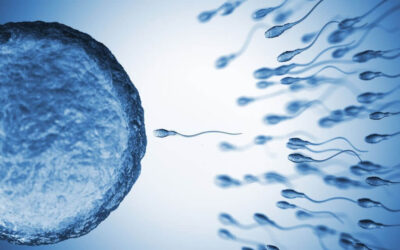It is common for people to suffer from hemorrhoids, which can be treated by changing their diet. If you have hemorrhoids, don’t eat fatty, processed, or alcoholic foods. You can reduce your chances of developing them by eating plenty of fruits, vegetables, and whole grains.
If you suffer from hemorrhoids, you should focus on certain foods. Whole grains, fruits, and vegetables are among these. Fiber in these foods softens your stool and helps you pass it more easily. The antioxidants and nutrients in them can also aid in healing and prevent recurrence.
Hemorrhoids: what are they and how do they occur?
Changing your diet can often be helpful in treating hemorrhoids, a common problem among many people. Anus and rectum veins become swollen and inflamed and cause piles. It might happen if you strain while passing a bowel movement, you spend too long on the toilet, or you lift heavy objects while pregnant.
Hemorrhoids symptoms
Pain, itching, and bleeding are the most common symptoms. Alcohol and fatty foods should be avoided if you have piles.
Fruits, vegetables, and whole grains should instead be eaten in abundance. Pain and inflammation will be reduced by eating these foods. The symptoms of hemorrhoids can also be relieved with over-the-counter hemorrhoid cream.
In case of severe pain, swelling, or bleeding, you should consult a doctor immediately. A prolapse or infection could cause these symptoms.
Hemorrhoids: How to treat them
Depending on the severity of hemorrhoids, there are a number of natural treatment for hemorrhoids options available. Over-the-counter hemorrhoid cream or tablets may be able to treat mild piles. You may need prescription medication or surgery if your hemorrhoids are more severe.
It is possible to relieve symptoms at home with a few simple steps. Don’t drink too much caffeine or alcohol and drink plenty of water. You may also want to use a hot compress or sit in a warm bathtub. For itching and pain relief, you can also purchase over-the-counter creams or ointments.
Seeing a doctor may be necessary if your hemorrhoids are severe. An outpatient or hospital setting is one option for surgery.
Hemorrhoids and surrounding tissue are removed during this procedure. In addition to hemorrhoid banding, another less-invasive option is hemorrhoidal tube placement. A hemorrhoid shrinks and eventually falls off as a result.
You should follow up with your doctor regardless of what treatment you choose to ensure that your problem does not recur. Sitting on the toilet for long periods of time or straining during bowel movements are also bad habits. Hemorrhoids can be aggravated by these factors.
Foods to avoid
Foods that aggravate hemorrhoids should be avoided if you suffer from them. Alcohol and processed foods are among the foods to avoid.
Hemorrhoids can become inflamed and painful when these foods are consumed. Inflammation can be reduced by eating lots of fruits, vegetables, and whole grains. Symptoms can also be relieved with over-the-counter creams.
You should see a doctor right away if you experience severe pain, swelling, or bleeding. An infection or hemorrhoid prolapse could be the cause of these symptoms.
In order to avoid a recurrence of the problem, you should follow up with your doctor regardless of the treatment you choose. Additionally, long periods of time on the toilet are not recommended. Your piles can become worse if you do these things. Diet plays a key role in keeping hemorrhoids at bay if you have them!
Foods to avoid
- Fatty foods
- Processed foods
- alcohol
Foods to eat
- Fruits
- Vegetables
You can change your diet to relieve hemorrhoids if you experience them. The most common cause of hemorrhoids is straining when trying to have a bowel movement, sitting on the toilet for an extended period of time, pregnancy, or lifting heavy objects. Alcohol, processed foods, and fatty foods can all exacerbate these problems.
Fruits, vegetables, and whole grains should instead be your main diet. Pain and inflammation can be reduced with these foods. Using over-the-counter cream may also be helpful in relieving symptoms. A doctor should be consulted if you experience severe pain, swelling, or bleeding.
A hemorrhoid prolapse or infection could be the cause of these symptoms. To ensure the problem doesn’t return, follow up with your doctor after completing any treatment.
Tips for treating and preventing piles
Hemorrhoids can be treated or reduced by a variety of at-home remedies and lifestyle habits.
- Prior to seeing a healthcare professional, use over-the-counter (OTC) hemorrhoid creams and suppositories (rectum-inserted medications) for around 1 week
- Stool softeners and laxatives available over-the-counter
- Lifting heavy objects with your knees when possible and avoiding lifting heavy objects
- When bowel movements are occurring, avoid straining, holding back, or spending too much time on the toilet
- Staying hydrated may help fiber from food work more effectively by drinking water, fruit juice, clear soup, or other liquids
- Pain medications available over-the-counter
- A sitz bath is a warm water bath taken several times a day
- Being within the recommended healthy weight range for your body
- Keeping anal contact to a minimum
- Exercising regularly
What can you do about hemorrhoid symptoms by changing your diet?
Having a healthy diet high in fiber, low in fat, and high in whole grains can prevent hemorrhoids symptoms. There are several benefits to eating more fiber, including:
- The time spent in the colon can be reduced by increasing stool weight
- The fiber in fiber increases the amount of water in the colon, resulting in softer, more easily passing stools
- As a result, food passes faster through the colon when its pH is decreased
Do you need a certain amount of fiber? To ensure that you get adequate amounts, speak to your primary care physician or a nutritionist. For every 1000 calories consumed, most people require 14 grams of fiber.
Conclusion
The consumption of healthy foods high in fiber can help ease symptoms of hemorrhoids, as well as prevent hemorrhoids from occurring. These foods may include pulses (beans, lentils, chickpeas), whole fruits and vegetables, high in water content, and whole grains.
Increase dietary fiber intake gradually to reduce gas and bloating side effects.
When hemorrhoids are severe or very large, or if they fail to improve after a week or two, people should see a doctor.





